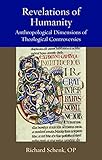Revelations of humanity : anthropological dimensions of theological controversies / Richard Schenk, OP.
Material type: TextSeries: Thomistic ressourcement series ; 020Publisher: Washington, D.C. : The Catholic University of America Press, [2022]Copyright date: c2022Description: xvi, 461 pagine ; 23 cmContent type:
TextSeries: Thomistic ressourcement series ; 020Publisher: Washington, D.C. : The Catholic University of America Press, [2022]Copyright date: c2022Description: xvi, 461 pagine ; 23 cmContent type: - testo (txt)
- senza mediazione (n)
- volume (nc)
- 9780813235523
- BX1751.3 .S2675 2022
- BQT 618.S26 2022
| Item type | Current library | Call number | URL | Status | Notes | Barcode | |
|---|---|---|---|---|---|---|---|
 eBook
eBook
|
Biblioteca "Angelicum" Pont. Univ. S.Tommaso d'Aquino Nuvola online | online - EBSCO (Browse shelf(Opens below)) | Online access | Not for loan (Accesso limitato) | Accesso per gli utenti autorizzati / Access for authorized users | (ebsco)3388423 | |
 Opera (Magaz.)
Opera (Magaz.)
|
Biblioteca "Angelicum" Pont. Univ. S.Tommaso d'Aquino Temporary Library | BQT 618.S26 2022 (Browse shelf(Opens below)) | Available | 0030215667 |
Browsing Biblioteca "Angelicum" Pont. Univ. S.Tommaso d'Aquino shelves, Shelving location: Temporary Library Close shelf browser (Hides shelf browser)

|

|

|

|

|

|

|
||
| BQT 618.M14 Made in God's image : the Catholic vision of human dignity / | BQT 618.O23 2016 Children of God in the world : an introduction to theological anthropology / | BQT 618.S24R 2021 Il sogno di Dio : una nuova umanità : antropologia teologica fondamentale / | BQT 618.S26 2022 Revelations of humanity : anthropological dimensions of theological controversies / | BQT 618.S41 2018 Il mistero della persona / | BQT 618.S42 2022 L'uomo secondo il disegno di Dio : temi di antropologia teologica / | BQT 618.S73 2009 Of God and man : theology as anthropology from Irenaeus to Athanasius / |
Include bibliografia (pagine 413-449) e indice.
"Revelations of Humanity brings together essays into the history and actuality of how our searches for God and for our own humanity are interwoven. They argue that the revelation of God is possible only when accompanied by a revelation of what it means to be a human being. Many of the essays involve a recollection of the thought of Thomas Aquinas. The book is divided into three sections. The first asks about the reality and limits of the human capacity for truth. The second cluster is structured around the four involvements that the Second Vatican Council identified as the human face of genuine Christian existence: participation in the legitimate joys, hopes, sorrows and fears of the contemporary world. The final cluster brings together anthropological dimensions of current ecumenical and interreligious disputes".


